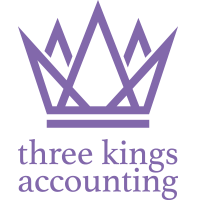VAT registered businesses act as unpaid tax collectors and are required to account both promptly and accurately for all the tax revenue collected by them.
The VAT system is policed by HMRC with heavy penalties for breaches of the legislation. Ignorance is not an acceptable excuse for not complying with the rules.
We highlight below some of the areas that you need to consider.
It is however important for you to seek specific professional advice appropriate to your circumstances.
What is VAT?
Scope
A transaction is within the scope of VAT if:
- there is a supply of goods or services
- it was made in the UK
- it was made by a taxable person
- it was made in the course or furtherance of business.
Inputs and outputs
Businesses charge VAT on their sales. This is known as output tax and the sales are referred to as outputs. Similarly VAT is charged on most goods and services purchased by a business. This is known as input tax.
The output tax is collected from the customer by the business on behalf of HMRC and must be regularly paid over to them by being included in a VAT return
However, the input tax suffered on the goods and services purchased can be deducted from the amount of output tax owed, so that only the net tax due is paid to HMRC. Please note that certain categories of VAT can never be reclaimed as input tax, such as that in respect of third party UK business entertainment and most purchases of motor cars.
Points to consider
Supplies
Taxable supplies are mainly either standard rated (20%) or zero rated (0%). There is, in addition, a reduced rate of 5% which applies to a small number of certain specific taxable supplies.
There are certain supplies that are not taxable and these are categorised as exempt supplies.
There is an important distinction between exempt supplies and zero-rated supplies:
- If your business is making only exempt supplies you cannot register for VAT and therefore cannot recover any input tax.
- If your business is making zero-rated supplies you should register for VAT as your supplies are taxable (albeit at 0%) and recovery of input tax is allowed.
Registration – is it necessary?
You are required to register for VAT if the value of your taxable supplies exceeds a set threshold. This threshold is applied in two different ways – either ‘looking back’ at the value of taxable supplies made in the previous 12 months, or ‘looking forward’ to taxable supplies anticipated in the next 30 days alone. The applicable threshold is £90,000 with effect from 1 April 2024.
If you are making taxable supplies below the threshold you can apply for voluntary registration. This would allow you to reclaim input VAT, which could result in a repayment of VAT, for example, if your business was principally making zero-rated supplies.
If you have not yet started to make taxable supplies but intend to do so, you can apply for registration as an ‘intending trader’. In this way input tax on start up expenses can be recovered.
Taxable person
A taxable person is anyone who makes or intends to make taxable supplies and is registered or required to be registered for VAT. For the purpose of VAT registration a ‘person’ includes:
- individuals
- partnerships
- companies, clubs and associations
- charities.
If any individual carries on two or more business activities all the supplies made in those businesses will be added together in determining whether or not the individual is required to register for VAT.
Administration
Once registered you must make a quarterly return to HMRC showing the amount of output tax to be accounted for on sales income and the amount of deductible input tax on expenditure, together with other statistical information. All businesses must file their returns online using software that meets requirements set by HMRC.
In most cases, an online VAT return must be completed and submitted within one month and seven days from the end of the period it covers.
Electronic payment by the same due date is also compulsory for all businesses.
Businesses making zero-rated supplies and which receive net repayments of VAT may find it beneficial from a cashflow perspective to submit monthly returns.
Businesses with expected annual taxable supplies not exceeding £1,350,000 may apply to join the annual accounting scheme whereby they will make monthly or quarterly payments of VAT but will only have to complete one VAT return at the end of the year.
Businesses trading below the £1,350,000 taxable turnover threshold may also wish to consider the cashflow benefits of joining the cash accounting scheme, whereby VAT is accounted for on sales and purchases on a cash book basis, rather than on an accruals basis.
Record keeping
It is important that a VAT registered business maintains complete and up-to-date records. This includes details of all supplies, purchases and expenses.
In addition, a VAT account should be maintained. This is a summary of output tax payable and input tax recoverable by the business. All business records should be kept for six years.
The above records must be maintained in software that meets HMRC requirements. HMRC does not provide free software.
Inspection of records
The maintenance of records and calculation of the VAT liability is the responsibility of the registered person but HMRC will need to be able to check that the correct amount of VAT is being paid. From time to time therefore a VAT officer may come and inspect the business records. This is known as a control visit.
The VAT officer will want to ensure that VAT rules are being applied correctly and that the returns and other VAT records are properly maintained.
However, you should not assume that in the absence of any errors being discovered during a visit, your business has been given a clean bill of health by HMRC.
Offences and penalties
HMRC has wide powers to penalise businesses that ignore or incorrectly apply the VAT regulations. Penalties (and in some instances interest) can be levied by HMRC in respect of the following:
- late returns/payments
- late registration
- errors in returns.
Retail schemes
There are special schemes available for retailers as it can be impractical for some retailers to maintain all the records required of a VAT registered trader.
Flat Rate scheme
This is a scheme allowing smaller businesses (with annual taxable turnover not exceeding £150,000) to pay their VAT to HMRC calculated as a percentage of their total business income. Therefore no specific claims to recover input tax need be made and this can reduce the record-keeping requirements. The aim of the scheme is to simplify the way smaller businesses account for VAT, but for some businesses it can actually result in a reduction in the overall amount of VAT that is payable to HMRC.
Making Tax Digital for Business: VAT
Under Making Tax Digital for VAT (MTDfV), all VAT registered businesses must keep digital records for VAT purposes and provide their VAT return information to HMRC using MTD functional compatible software.
There are some exemptions from MTDfV. However, the exemption categories are tightly-drawn and are unlikely to be applicable to most VAT registered businesses.
How we can help
Ensuring that you comply with all the VAT regulations is essential. We can assist you in a number of ways including the following:
- tailoring your accounting systems to bring together the VAT information accurately and quickly
- ensuring that your business is VAT efficient
- providing assistance with the completion of VAT returns
- negotiating with HMRC if disagreements arise and in reaching settlement
- advising as to whether any of the available schemes may be appropriate for you
- helping you comply with the MTDfV regime.
If you would like to discuss any of the points mentioned above please contact us.


